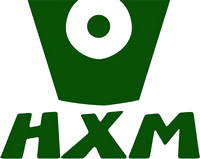Kovar
Kovar: A High-Performance Alloy with Exceptional Properties
Kovar is a trademarked name for a nickel-cobalt-iron alloy with a unique combination of properties that make it highly suitable for precision applications, particularly where thermal expansion and sealing characteristics are critical. Kovar is a metal alloy composed primarily of iron (Fe), nickel (Ni), and cobalt (Co), with smaller amounts of manganese (Mn), silicon (Si), and carbon (C). One of its most notable features is its ability to match the thermal expansion of borosilicate glass or other materials used in electronic devices and aerospace components, making it an ideal material for hermetic sealing in these industries.
Key Properties of Kovar:
Coefficient of Thermal Expansion (CTE):
- Kovar is known for its low coefficient of thermal expansion (CTE), which is close to that of glass (approximately 5.0 × 10⁻⁶/°C). This property makes it highly valuable in applications where it needs to be sealed to glass, as it expands and contracts at the same rate when subjected to temperature changes. This compatibility is crucial in industries like electronics, where components need to be hermetically sealed to prevent moisture or contaminants from entering.
Composition:
- Nickel (29–17%): Nickel is the primary alloying element in Kovar, contributing to its magnetic properties and resistance to corrosion.
- Cobalt (17–20%): Cobalt is the second primary alloying element, contributing to the alloy’s thermal expansion properties and improving its overall strength and stability.
- Iron (Balance): Iron is the base element of Kovar, making up the bulk of the alloy’s composition.
- Other elements: Small amounts of manganese, silicon, and carbon are added to enhance specific properties like strength, machinability, and corrosion resistance.
Magnetic Properties:
- Kovar exhibits ferromagnetic properties, making it useful in applications where magnetism is important, such as in magnetic sensors, motors, and magnetic sealing. However, care must be taken when using Kovar in applications where non-magnetic materials are required.
Strength and Hardness:
- Moderate Strength: Kovar provides a good balance between strength and ductility. It is strong enough for structural applications but still maintains enough ductility to be easily fabricated and sealed.
- Hardness: Kovar has moderate hardness, making it relatively easy to machine and form into required shapes. However, like many other alloys, it can work harden under certain conditions.
Weldability and Machinability:
- Weldability: Kovar is weldable using traditional methods such as TIG welding (Tungsten Inert Gas) and MIG welding (Metal Inert Gas), but it requires controlled conditions due to its relatively low thermal conductivity and high carbon content.
- Machinability: Kovar is relatively easy to machine, especially in its annealed (softened) form. It can be drilled, turned, and milled, though care should be taken when working with it at higher hardness levels to avoid tool wear.
Corrosion Resistance:
- Kovar has a moderate resistance to corrosion due to its nickel content. However, it is not as corrosion-resistant as some other high-performance alloys like stainless steel. In many applications, especially where exposure to harsh environments is expected, Kovar may require additional coatings or surface treatments to enhance its durability.
Thermal Conductivity:
- Low Thermal Conductivity: Kovar has relatively low thermal conductivity, making it suitable for applications where thermal insulation is important. This property also helps reduce heat loss in electronic packaging applications.
Applications of Kovar:
Electronic Components:
- Hermetic Seals: Kovar is widely used in hermetic sealing applications, such as in vacuum tubes, semiconductor packages, connectors, and electrical feedthroughs. Its ability to bond well with glass and maintain dimensional stability across temperature changes makes it ideal for glass-to-metal seals.
- High-Performance Electronics: Kovar is used in electronics that require stable performance under temperature fluctuations, such as in high-reliability components for military, aerospace, and telecommunications equipment.
Aerospace:
- In aerospace, Kovar is used for components that are exposed to extreme temperatures and need to be sealed to glass or ceramic materials. These include satellite equipment, missile systems, and aerospace sensors.
- Heat Shields: Due to its low thermal expansion, Kovar is also used in heat shield assemblies in aerospace applications.
Precision Instruments:
- Kovar is utilized in precision instruments that require reliable temperature stability and hermetic sealing, such as sensors, microwave devices, and precision machinery.
Vacuum Systems:
- Kovar is often used in vacuum tubes and electronic components designed for use in high-vacuum environments. Its ability to form strong seals with glass under vacuum conditions makes it an essential material for these systems.
Military and Defense:
- Kovar is used in military and defense applications, particularly in components requiring sealing under harsh conditions, such as in radar systems, guidance systems, and missile electronics.
Medical Devices:
- Kovar can also be found in medical devices that require high reliability and hermetic sealing, such as in pacemakers and implantable sensors.
Variants of Kovar:
- Kovar 29: This is the most common form of Kovar, containing 29% nickel, 17-20% cobalt, and the remainder is iron.
- Kovar 49: A variant of Kovar with 49% nickel content, designed to offer better strength and corrosion resistance for more demanding applications.
Summary:
Kovar is a versatile nickel-cobalt-iron alloy that is valued for its low thermal expansion, magnetic properties, and ability to form strong seals with glass and ceramic materials. It is commonly used in applications that require precise sealing in environments with varying temperatures, such as in electronics, aerospace, military systems, and vacuum systems. While it offers moderate strength, corrosion resistance, and machinability, Kovar is primarily recognized for its ability to maintain dimensional stability and thermal expansion compatibility with other materials, making it an essential material for high-precision applications.
